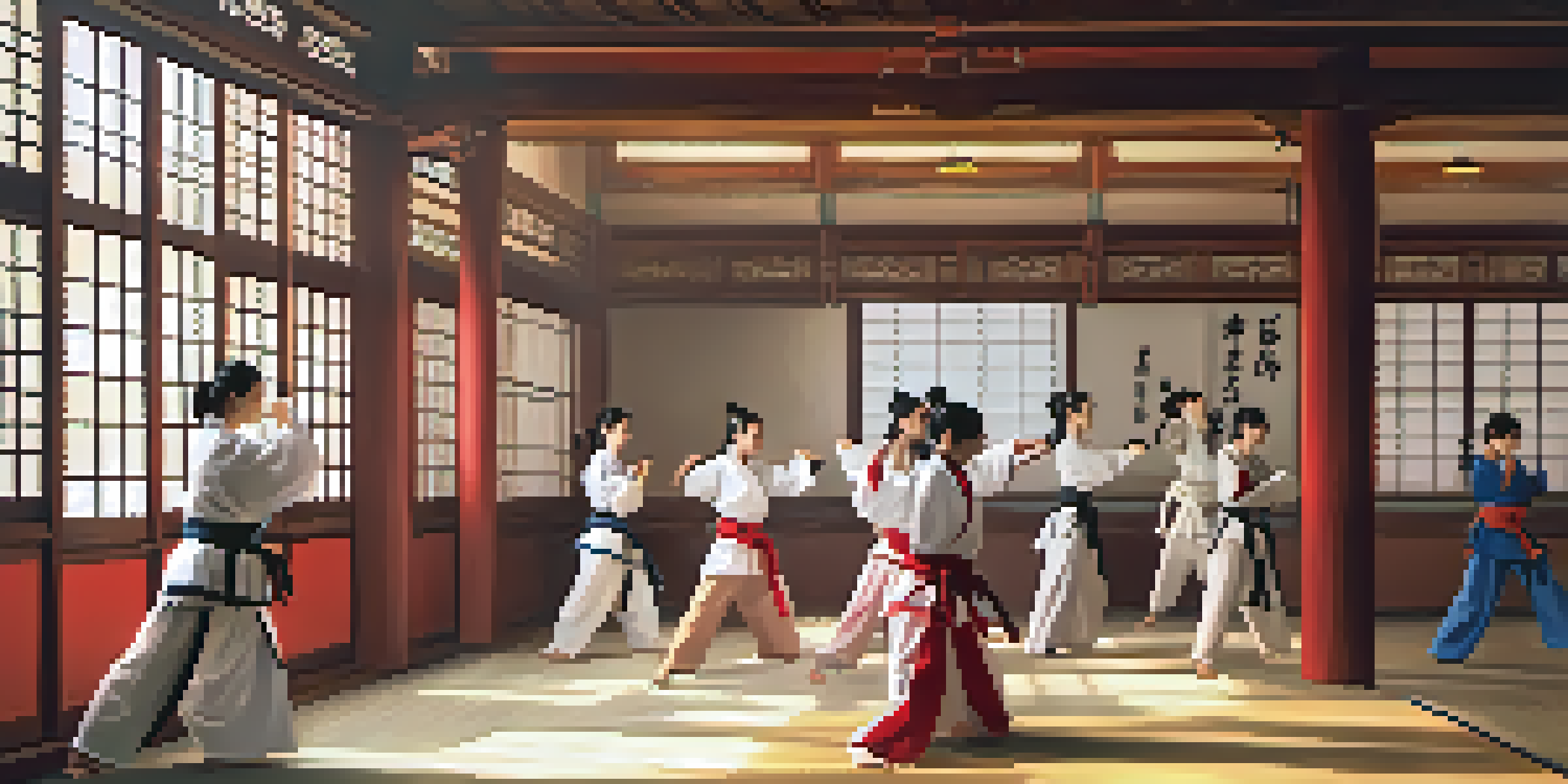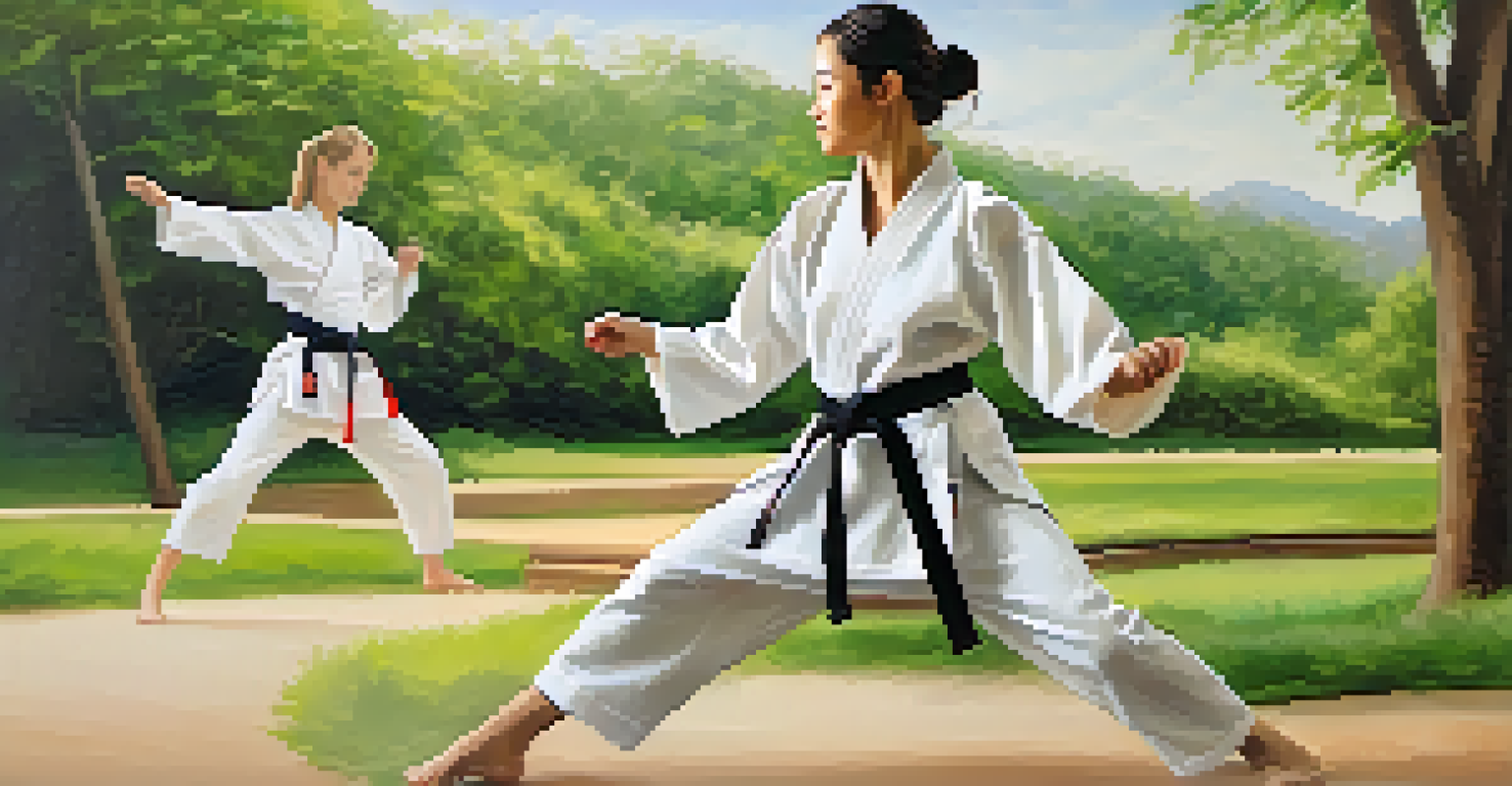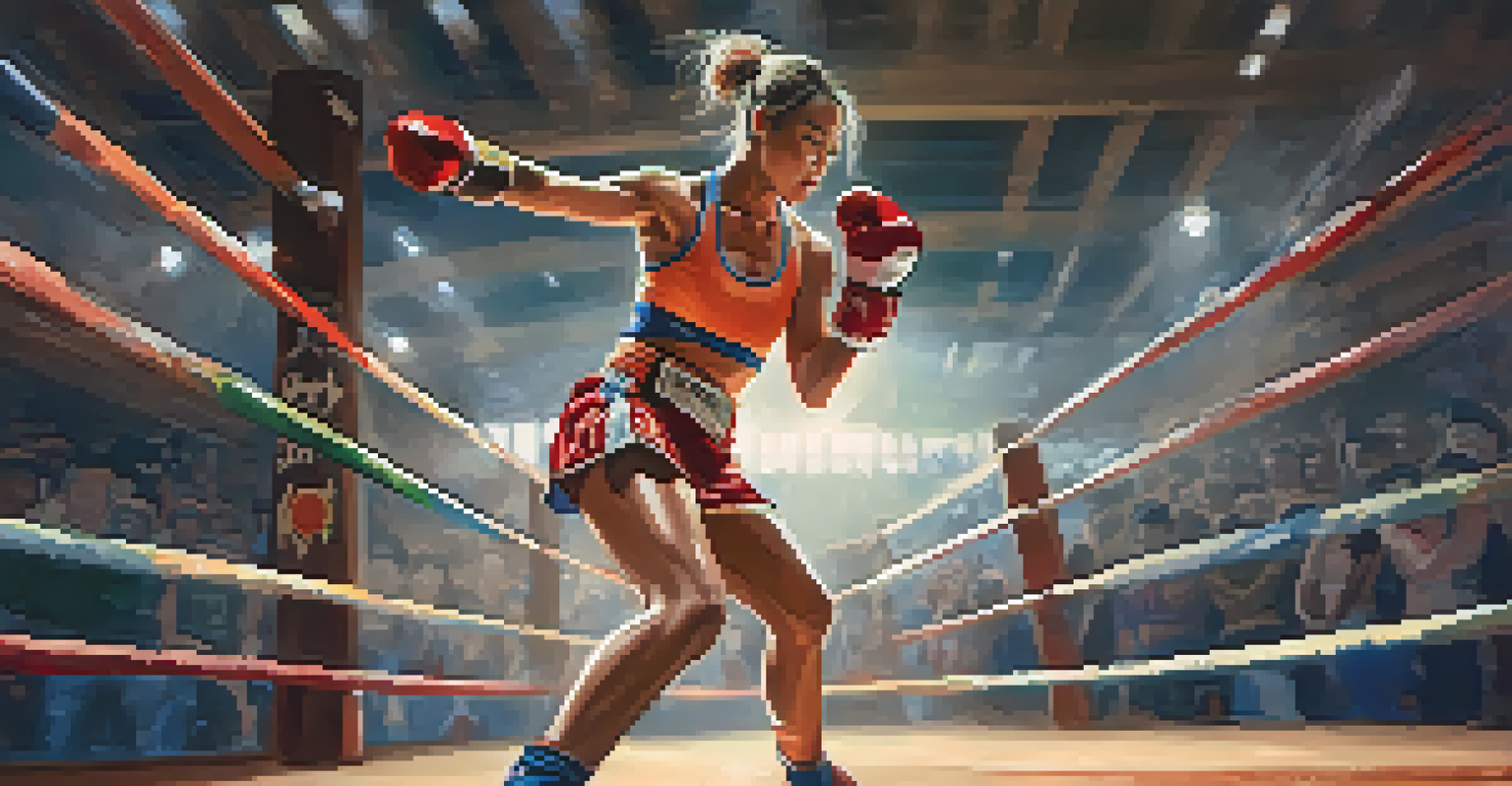Cultural Impact: Women in Martial Arts Across the Globe

The Historical Roots of Women in Martial Arts
Women have been involved in martial arts for centuries, often in roles that were overlooked in history. From the legendary figures in ancient Chinese martial arts to the warriors of Japan, women have played pivotal roles. Their participation often challenged societal norms, showcasing strength, agility, and resilience in a male-dominated sphere.
Martial arts are not about fighting; it's about finding your strength and confidence.
In many cultures, the presence of women in martial arts served as a symbol of empowerment and independence. For instance, the legendary warrior women of the Amazons are often cited in discussions about female combatants. These historical examples laid the groundwork for future generations, encouraging women to pursue martial arts as a means of self-defense and personal growth.
Despite the rich history, women's contributions in martial arts were frequently overshadowed. It wasn't until the late 20th century that we began to see a shift, with increased recognition of female martial artists and their achievements. This resurgence has spurred a growing interest in diverse martial arts styles tailored for women.
Modern Trends in Women's Martial Arts Participation
Today, women are breaking barriers and making headlines in martial arts like never before. From Brazilian Jiu-Jitsu to Muay Thai, women are stepping into the ring and proving their mettle. This new wave of female fighters showcases a blend of skill, technique, and determination that inspires others to join the ranks.

Martial arts schools across the globe are increasingly promoting inclusivity, welcoming women of all ages and backgrounds. Classes designed specifically for women emphasize building confidence and self-defense skills. This supportive environment fosters a sense of community and encourages personal development beyond just physical training.
Women Empowered in Martial Arts
Throughout history, women have played pivotal roles in martial arts, showcasing strength and resilience despite societal challenges.
Moreover, the rise of female champions in combat sports has sparked interest in martial arts among young girls. Figures like Ronda Rousey and Valentina Shevchenko have become role models, proving that women can excel in traditionally male-dominated arenas. Their success has paved the way for future generations of female athletes.
Cultural Perspectives on Women in Martial Arts
Cultural attitudes toward women in martial arts vary significantly across the globe. In some cultures, martial arts are seen as a pathway to empowerment, while in others, traditional gender roles may restrict participation. Understanding these cultural nuances is crucial to appreciating the diverse landscape of women in martial arts.
Empowerment is not just about physical strength; it's about building the belief that you can overcome any challenge.
For instance, in countries like Brazil, women are often celebrated in martial arts communities, as seen with the popularity of Capoeira and Jiu-Jitsu. Conversely, in more conservative societies, women may face challenges in pursuing martial arts due to societal expectations. This juxtaposition highlights the ongoing struggle for equality and recognition in different cultural contexts.
Ultimately, the cultural narrative surrounding women in martial arts is evolving. As more women engage in these practices, they challenge stereotypes and reshape perceptions, showcasing their strength and capabilities. This cultural shift is not just about fighting; it's about redefining what it means to be a woman in today's world.
The Role of Female Instructors in Martial Arts
Female instructors play a vital role in promoting women’s participation in martial arts. Their presence not only serves as inspiration but also creates a safe space for female students to learn and grow. By sharing their experiences, these instructors can empower the next generation of female martial artists.
Moreover, female instructors often bring unique teaching styles that resonate with women, focusing on empowerment and self-confidence. They understand the challenges female students may face and tailor their lessons accordingly, making the training experience more relatable. This personalized approach can significantly impact a student's journey in martial arts.
Rise of Female Champions
Modern female fighters like Ronda Rousey are inspiring young girls to pursue martial arts, breaking down traditional gender barriers.
As more women rise to positions of leadership within martial arts schools, the landscape continues to change for the better. These trailblazers are not just teaching techniques; they are cultivating a culture of support and encouragement, which is essential for fostering female talent in martial arts.
Media Representation of Women in Martial Arts
Media representation plays a crucial role in shaping public perception of women in martial arts. Films, television shows, and social media have brought female martial artists into the spotlight, showcasing their skills and stories. This visibility is essential for inspiring young girls to pursue martial arts.
Movies featuring strong female leads, like 'Kill Bill' and 'Wonder Woman,' have revolutionized how women in martial arts are portrayed. They depict not only physical prowess but also depth of character, challenging traditional gender stereotypes. This shift in representation encourages a broader audience to appreciate women's contributions to martial arts.
Social media has further amplified these narratives, with platforms allowing female martial artists to share their journeys and connect with others. This online community fosters a sense of belonging and empowerment, encouraging women to participate in martial arts regardless of their background or experience level.
Impact of Women’s Martial Arts on Self-Defense
Women's martial arts training often emphasizes self-defense, equipping women with essential skills to protect themselves. This focus is particularly important in today’s world, where personal safety is a prevalent concern. By learning self-defense techniques, women gain confidence and empowerment, knowing they can handle potentially dangerous situations.
Classes often incorporate practical scenarios that women may face, making the training relevant and effective. Instructors teach techniques that leverage speed and agility rather than brute strength, which can be particularly advantageous for women. This practical approach helps students feel more prepared and capable.
Cultural Shifts and Inclusivity
As martial arts communities promote inclusivity, women are redefining their roles and challenging stereotypes globally.
Furthermore, self-defense training fosters a sense of community among women. Many martial arts schools offer women-only classes, creating a supportive environment where participants can learn without fear of judgment. This camaraderie not only enhances the learning experience but also builds lasting friendships.
Future Directions for Women in Martial Arts
As the landscape of martial arts continues to evolve, the future for women in this field looks promising. The increasing visibility of female athletes, instructors, and leaders is paving the way for greater acceptance and participation. This momentum suggests that women will continue to break barriers and redefine their roles in martial arts.
Advancements in technology and social media will likely play a significant role in this evolution. Online training resources, virtual competitions, and social platforms can expand access to martial arts for women everywhere. These tools will help foster a global community of female martial artists, exchanging knowledge and support.

Ultimately, the cultural impact of women in martial arts will continue to resonate across generations. As more women take up martial arts, they will inspire others to join, creating a cycle of empowerment and growth. The journey of women in martial arts is just beginning, and the future is bright.